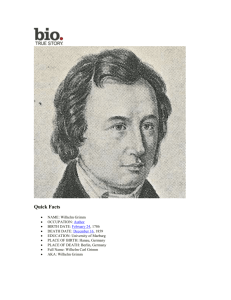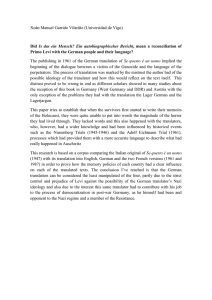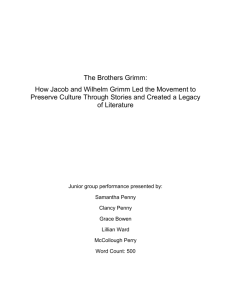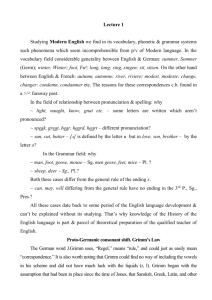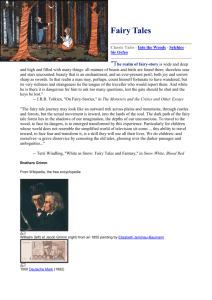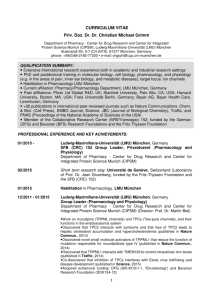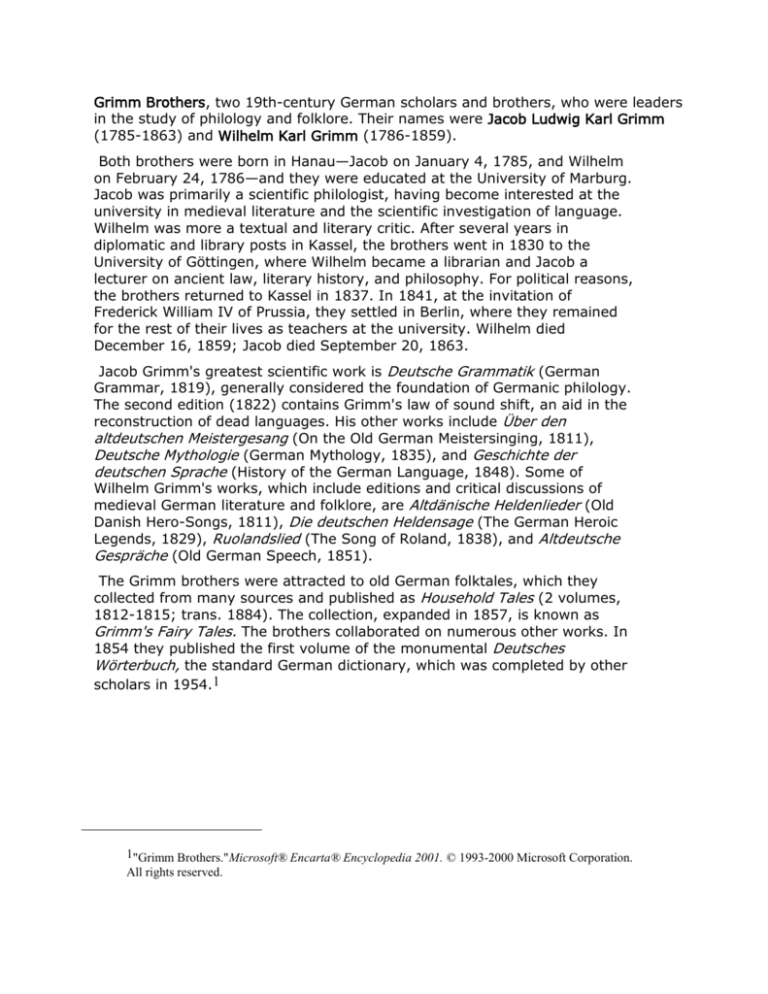
Grimm Brothers, two 19th-century German scholars and brothers, who were leaders
in the study of philology and folklore. Their names were Jacob Ludwig Karl Grimm
(1785-1863) and Wilhelm Karl Grimm (1786-1859).
Both brothers were born in Hanau—Jacob on January 4, 1785, and Wilhelm
on February 24, 1786—and they were educated at the University of Marburg.
Jacob was primarily a scientific philologist, having become interested at the
university in medieval literature and the scientific investigation of language.
Wilhelm was more a textual and literary critic. After several years in
diplomatic and library posts in Kassel, the brothers went in 1830 to the
University of Göttingen, where Wilhelm became a librarian and Jacob a
lecturer on ancient law, literary history, and philosophy. For political reasons,
the brothers returned to Kassel in 1837. In 1841, at the invitation of
Frederick William IV of Prussia, they settled in Berlin, where they remained
for the rest of their lives as teachers at the university. Wilhelm died
December 16, 1859; Jacob died September 20, 1863.
Jacob Grimm's greatest scientific work is Deutsche Grammatik (German
Grammar, 1819), generally considered the foundation of Germanic philology.
The second edition (1822) contains Grimm's law of sound shift, an aid in the
reconstruction of dead languages. His other works include Über den
altdeutschen Meistergesang (On the Old German Meistersinging, 1811),
Deutsche Mythologie (German Mythology, 1835), and Geschichte der
deutschen Sprache (History of the German Language, 1848). Some of
Wilhelm Grimm's works, which include editions and critical discussions of
medieval German literature and folklore, are Altdänische Heldenlieder (Old
Danish Hero-Songs, 1811), Die deutschen Heldensage (The German Heroic
Legends, 1829), Ruolandslied (The Song of Roland, 1838), and Altdeutsche
Gespräche (Old German Speech, 1851).
The Grimm brothers were attracted to old German folktales, which they
collected from many sources and published as Household Tales (2 volumes,
1812-1815; trans. 1884). The collection, expanded in 1857, is known as
Grimm's Fairy Tales. The brothers collaborated on numerous other works. In
1854 they published the first volume of the monumental Deutsches
Wörterbuch, the standard German dictionary, which was completed by other
scholars in 1954.1
1"Grimm Brothers."Microsoft® Encarta® Encyclopedia 2001. © 1993-2000 Microsoft Corporation.
All rights reserved.

